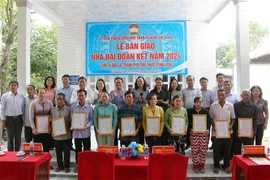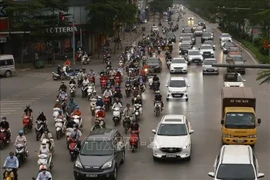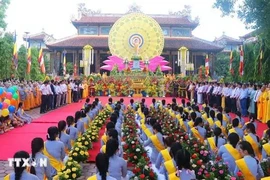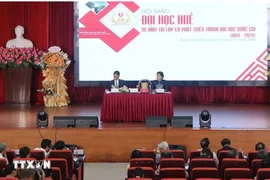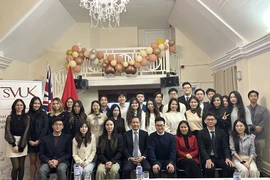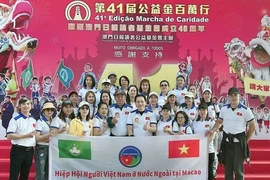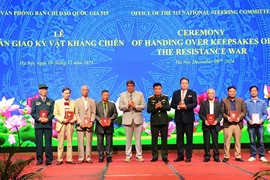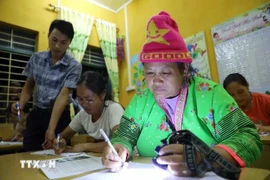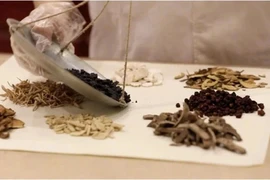Seeing Hanoi from above is very special these days when many streets in the center of the city are empty of people, who are at home to prevent the COVID-19 epidemic from spreading. The government asked people to limit going out.
Shops on the street are all closed. People are only allowed to go out when absolutely necessary. Therefore, the number of people and vehicles on the street decreases drastically.
This is the second time Hanoi has implemented social distancing measures since 2020 when the epidemic has just begun.
Many shopping centers are also closed. The city only allows supermarkets to open to sell essential goods.
Before that, the capital government decided to implement the city-wide social distancing order. From 6 a.m. on July 24, the whole city is under social isolation for 15 days, according to a principle that families are isolated from families, neighborhoods are isolated from neighborhoods, villages are isolated from villages, communes and wards are isolated from other communes and wards, districts are isolated from districts, cities are isolated from provinces.
Business establishments providing essential services and factories that are allowed to operate must ensure safety and must have epidemic prevention measures.
The above decision was made in the context that Hanoi has continuously detected new cases in recent days, with many outbreaks of unknown origin.
From July 20 to the morning of July 30, Hanoi recorded 1203 cases of COVID-19. This is the highest number of new cases in the capital, with many outbreaks of unknown origin.
The city's authority ordered people to stay at home and only go out in cases of real necessity such as buying food, medicine; in an emergency situation; for medical examination and treatment; vaccination and other emergencies; going on business or official duty; working at agencies and offices; working at a factory or in an establishment providing services and essential goods.
The city closes or temporarily suspends operations for business and service establishments, except for the following cases: commercial centers, supermarkets, normal markets, convenience stores, mini supermarkets, grocery stores, flower, fruit, and vegetable shops, agro-food chains that only sell essential items. Those stores, shops, and markets ensure a full supply of daily necessities for people living in Hanoi.
Necessary establishments that don't have to suspend operation also include drug stores, medical examination and treatment establishments, banks, treasuries, service providers directly related to banking activities and supporting businesses (such as notaries, lawyers, registry, transaction registration), securities, postal and telecommunication services, transportation support services, importing and exporting of goods, rehab centers, social protection establishments.
Funerals are only held within the family with no more than 20 people attending and no guests.
Establishments that are allowed to operate must ensure safety for workers and the community. They have to record information related to all people who come to buy goods/use services and make medical declarations by QRCode.
Factories outside industrial zones/clusters must register their operation with the local government regarding the number of employees, the plan to ensure epidemic prevention and control, and operation time.
Factories, enterprises, and production facilities in industrial zones/clusters must develop a “safe production plan" under the principle “3 on the spot: production, eating, resting on the spot" or "1 road 2 destinations".
Agencies, offices, companies, enterprises, and corporations (except for urgent political and foreign activities) have to allow employees to work from home.
Only in really necessary cases, workers can come to their workplaces, such as: on combat duty, providing essential goods and services, handling confidential documents.
The city stops passenger transportation by cars, buses, taxis, contract cars, tourist cars, intercity coaches, motorbikes (including vehicles using applications to connect with passengers and traditional “xe om”)./.




